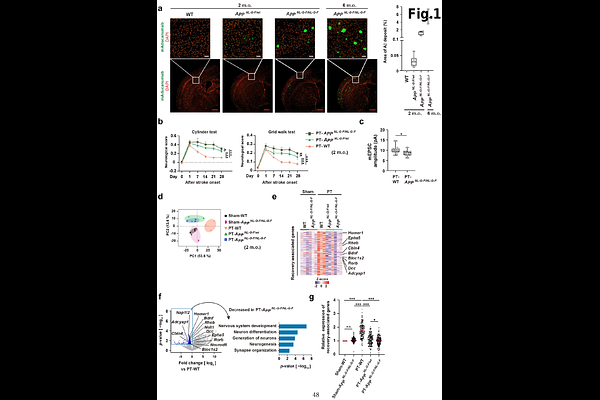Anti-amyloid beta therapy resolves stroke recovery impairment caused by Alzheimer's disease

Anti-amyloid beta therapy resolves stroke recovery impairment caused by Alzheimer's disease
Sakai, S.; Otani, K.; Tsuyama, J.; Hara, Y.; Abe, K.; Shimamura, T.; Kawakami, I.; Komori, T.; Kawaji, H.; Hase, K.; Saito, T.; Shichita, T.
AbstractStroke and dementia are common comorbidities and a growing concern causing disability in aging societies worldwide. Although anti-amyloid beta (anti-A{beta}) antibodies have recently been anticipated to relieve preclinical Alzheimer\'s disease pathology, we discovered that post-stroke administration of anti-A{beta} antibodies restored neural repair for stroke recovery impeded by cerebral A{beta} accumulation. Neuronal recovery-associated gene expression for stroke recovery was considerably impaired even by slight A{beta} accumulation in murine and human brain. Slight A{beta} accumulation had less impact on neurons without stroke but caused a unique myeloid immunity after an ischemic stroke that enhanced the inflammatory cascades impeding neural repair for stroke recovery. Aducanumab administration after ischemic stroke prevented formation of this malignant myeloid immunity, resolving the impairment of post-stroke neural repair caused by cerebral A{beta} accumulation. Thus, our study has revealed the ability of anti-A{beta} therapies to restore functional recovery after a stroke with cerebral A{beta} accumulation.